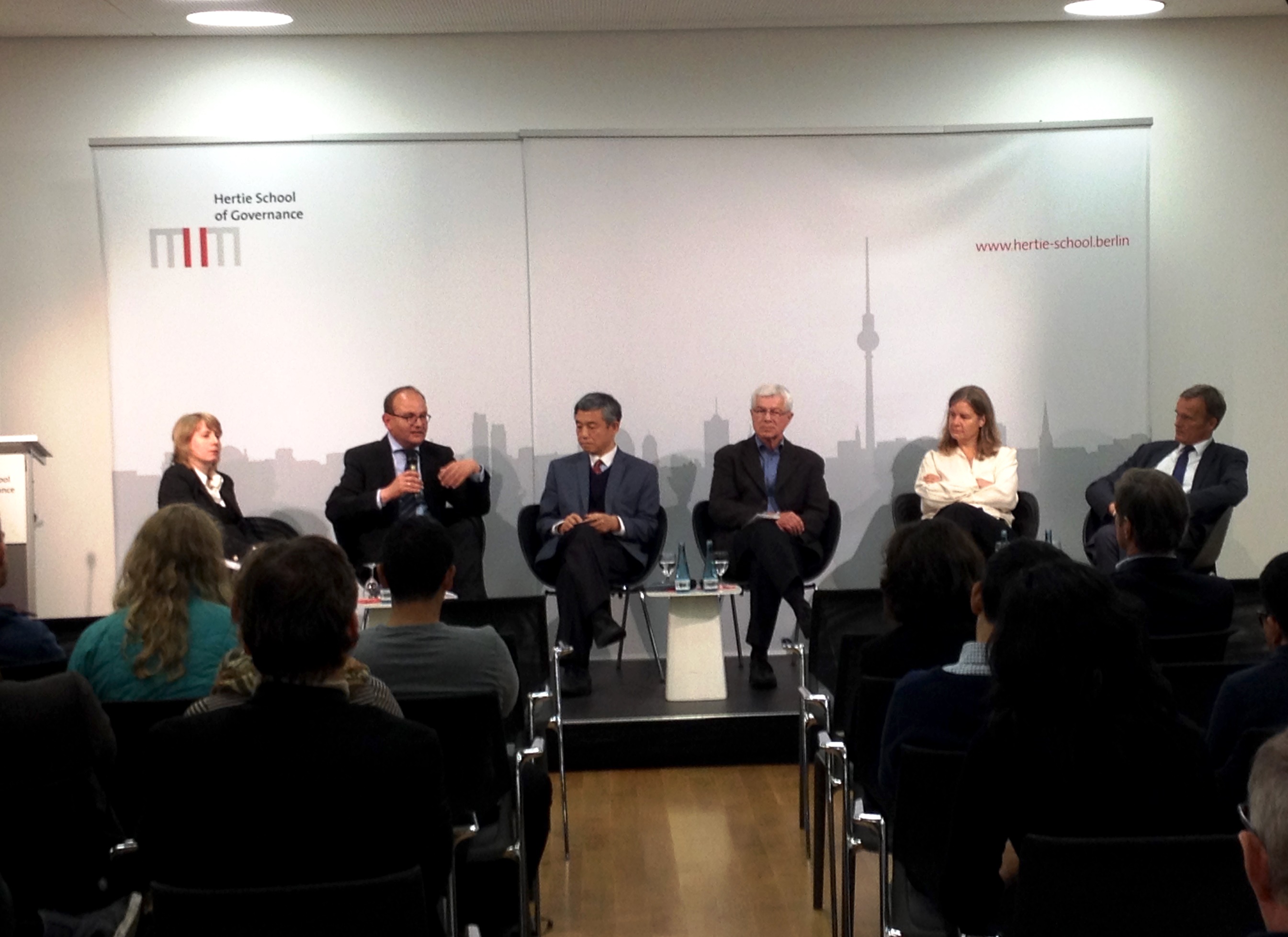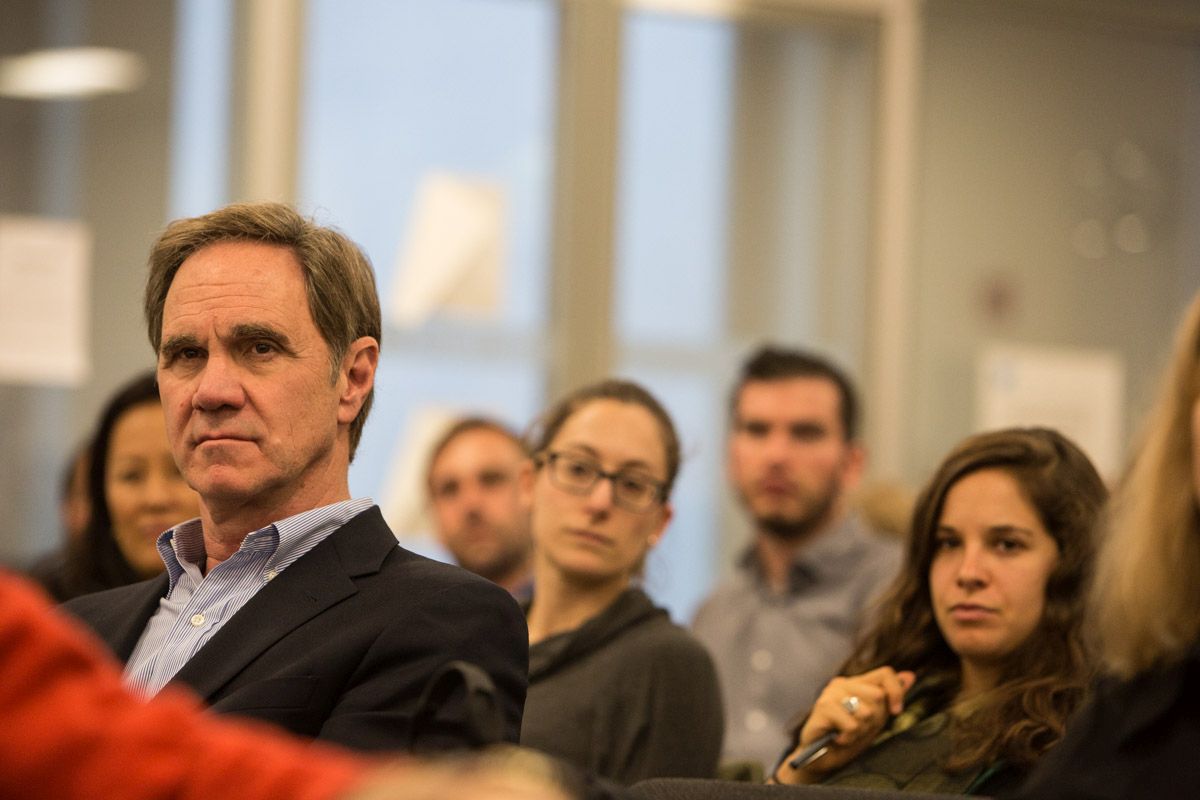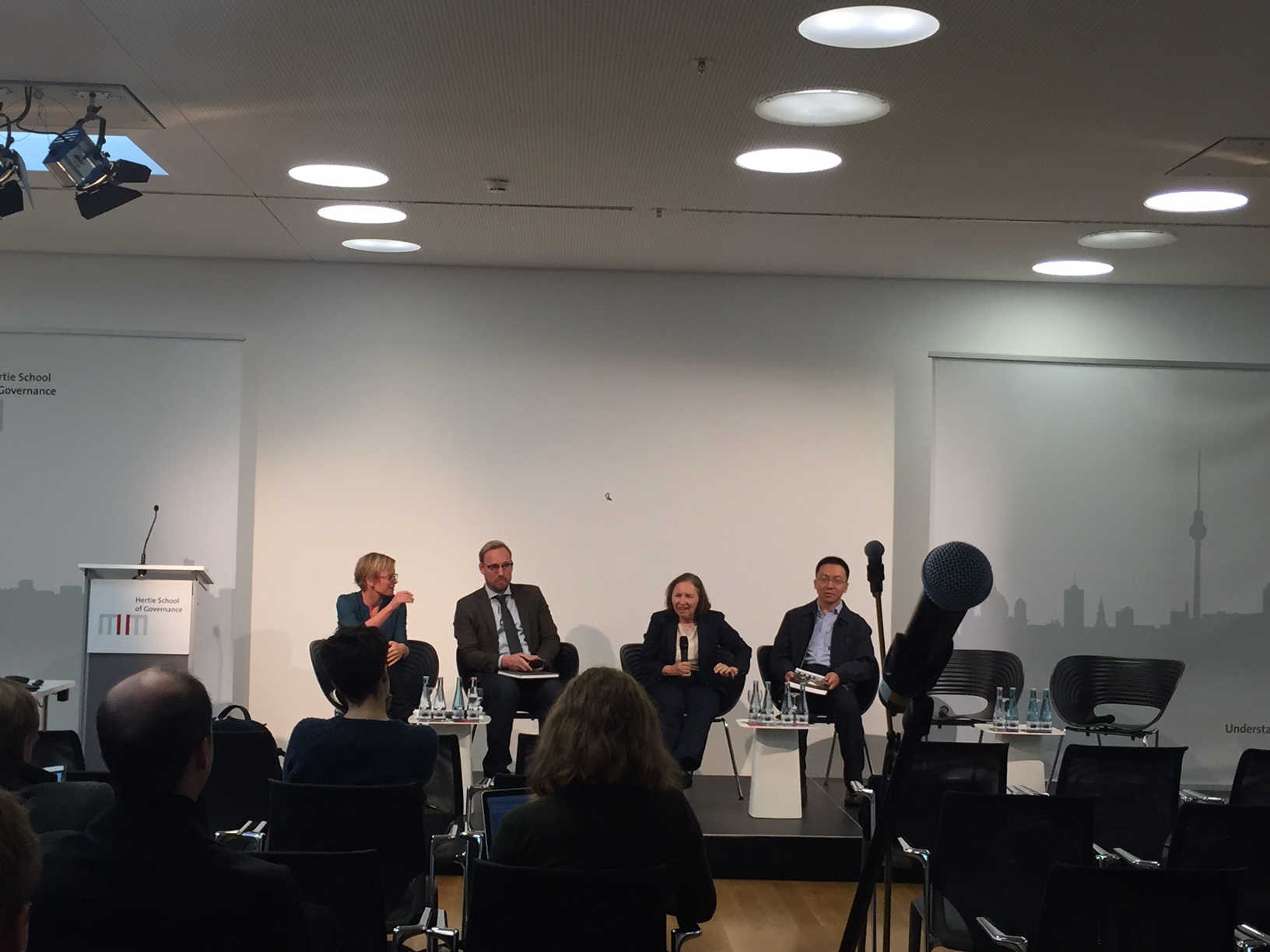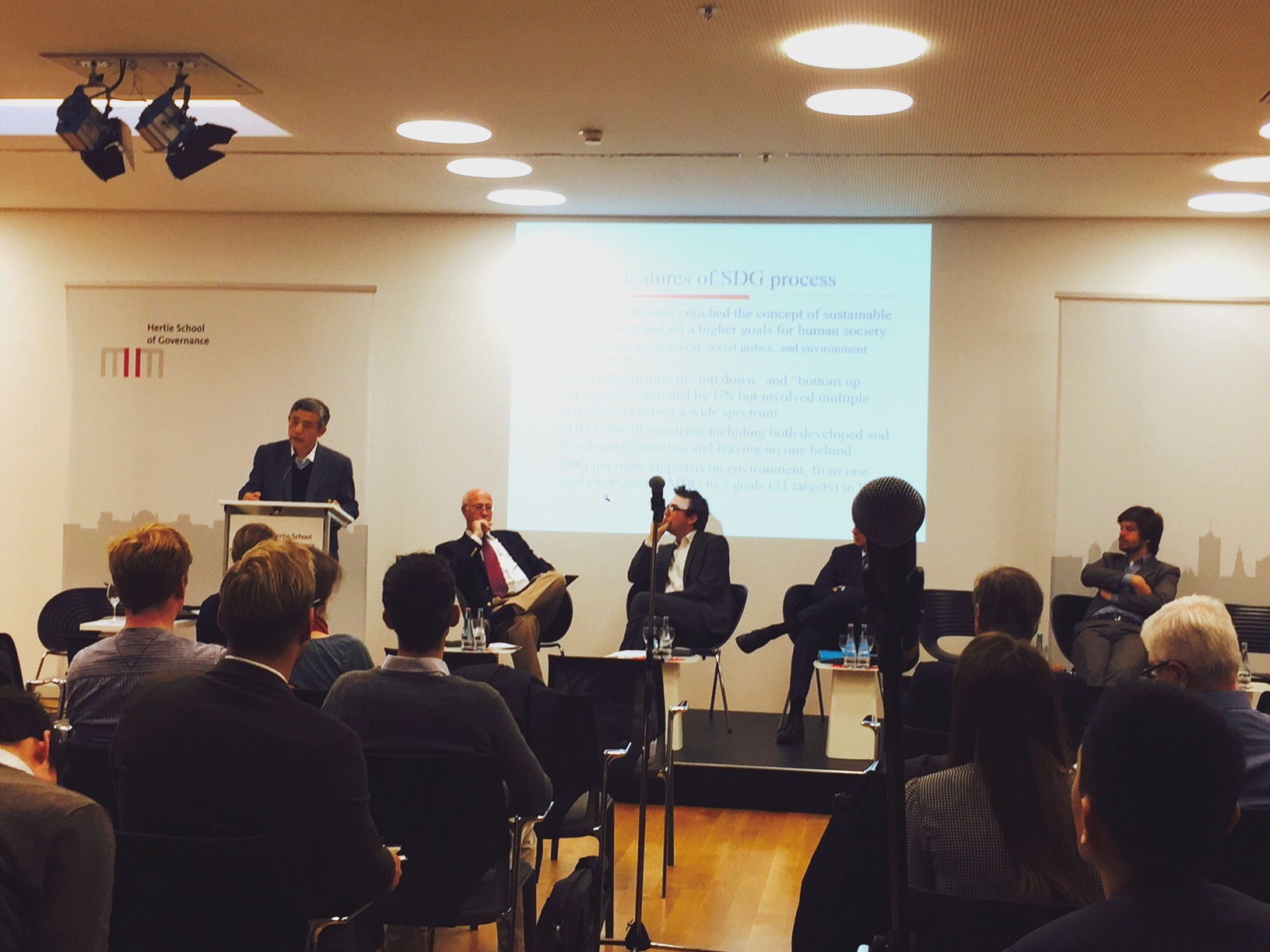The second of a three-year Energy Policy Forum research partnership supported by SI and the Price School convened in Berlin Germany on October 6 & 7. Together with their school Deans faculty teams from Price, Tsinghua School of Policy (Beijing), and Hertie School of Governance (Berlin) met for the second year in a row to share research findings and discuss commonalities in the evolving energy and climate change policies in the US, China, and Germany. Key themes of the Forum include the role of governing institutions and climate change policy from global to local levels in fostering the energy transition to renewables. Policy strategies for encouraging renewables over conventional fossil fuels include cap-and-trade, feed-in-tariffs, and other market-based approaches. The focus is also on nudging the adoption of new communication technologies that facilitate smart energy usage decisions, particularly at the household level. A plenary session focused “On the Road from Paris to Marrakech”, with particular focus on the implications of the then pending presidential election on US posture toward the nationally agreed upon pledges on climate change mitigation, the central topic to be taken up by the international community the following week in Marrakech.
In his opening address Dean Jack Knott applauded the Forum’s multi-national and multi-school research and policy engagement on so important an issue as climate change. The SI research team included Research Professor Adam Rose, presenting on the equity implications of nationally determined contributions to reduce greenhouse gases. Research Professor Hilda Blanco, who moderated a panel on urban climate change mitigation policies. Professor Detlof von Winterfeldt, who presented a comparison of household energy footprints in Germany, US and China, and who served as moderator of the panel on Household Energy Behavior. Research Assistant Professor Nicol Sintov shared her findings on household energy behavior in Southern California. Professor Daniel Mazmanian, co-organizer of the Forum, presented a framework for comparing factors contributing to ambitious energy transition policies among nations and states. He also participated in the plenary session, focusing on the likely implications for US climate change policy if Hilary Clinton versus Donald Trump was to be elected as next president of the United States.
The third and final Forum will be hosted by SI and the Price School in October of 2017.





